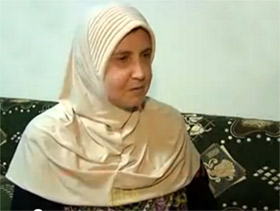Tag: Prisoner Swap
-
Palestine mourns another real legend, a symbol of motherhood
by Shahd Abusalama 11 December 2011 | Palestine from My Eyes My voice is muted but every feature of my face speaks sorrow and anger. There is no need to wonder why. It’s Palestine, the rich land where smiles can turn to tears and laughs can turn to sighs in a second. It’s Palestine, where…
-
In Exile: Families relate stories of prisoner exiles
by Alistair George 10 December 2011 | International Solidarity Movement, West Bank Although Palestinian prisoners endure harsh conditions in Israeli prisons, including and physical and psychological torture, their families are also severely punished through the policies of the Israeli authorities. The prisoner release deal brokered between Hamas and the Israeli authorities saw the release of…
-
‘A Needle in the Binding’: The legacy of Palestinian prisoner self-education in Israeli prisons
by Ben Lorber and Khalil Ashour 29 November 2011 | International Solidarity Movement, West Bank On the third floor of the Nablus Municipality Library, there sits a room of over 8,000 books set apart from the rest. Many of these books are very old and tattered; many of them, in lieu of a normal face,…

